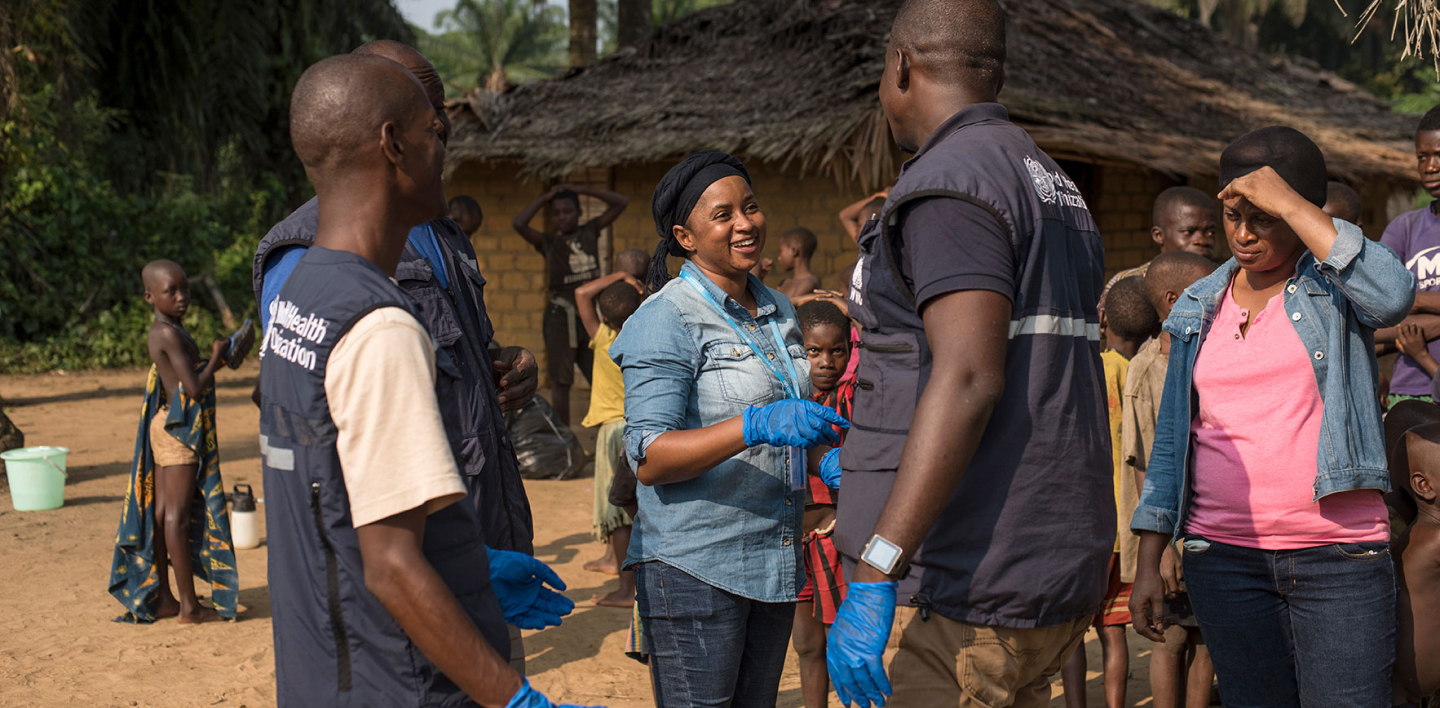
Consolidation Phase: 2021 and beyond
The AFRO Transformation Consolidation Phase
“The COVID-19 pandemic has presented a unique opportunity to take-stock, adapt and consolidate the Transformation Agenda for sustainable and impactful change. The lessons learned from the pandemic response has renewed AFRO's resolve to transform into the fit-for-purpose organization that Member States and staff want.
We have arrived at a turning point in our transformation journey in the African Region and are now looking ahead to the Consolidation Phase of the AFRO Transformation Agenda.”
-Dr Matshidiso Moeti, WHO Regional Director for Africa
Why consolidate the AFRO Transformation Agenda?
Consolidation phase strategic objectives
Avoid competing priorities:
Consolidation initiatives will be embedded in ongoing operations, which inevitably have priority in terms of financial and human resource allocation
Learn and adapt:
Take stock of achievements, challenges and lessons including from the pandemic and identify areas for improvement and knowledge generation
Address change resistance:
Provide strong leadership, enhanced communications and improve staff engagement in the change process to help reduce resistance among staff
Promote institutionalization:
Consolidation efforts will institutionalize and integrate TA initiatives into routine processes
AFRO Transformation Agenda Consolidation
Improve alignment:
Promote integration and resourcing of successful change initiatives across three levels of WHO with a focus on accelerating country level transformation based on country needs and context
Promote ownership:
Consolidation will map and integrate TA initiatives across programmes
Strengthen focus on results:
Review of activities, resource flows and performance will allow us to identify, adequately resource and deliver high-quality high-impact TA initiatives
Set priorities:
Consolidation will allow the organization to assess TA achievements and recalibrate priorities for high impact and lasting change
An opportunity to renew
our change ambition
The AFRO Transformation Agenda consolidation phase is the roadmap to a stronger, agile, more accountable, and resilient WHO in the African Region that is better equipped to support Member States' recovery efforts and make health for all a reality on the continent.
It builds on the solid foundation of implementing the Transformation Agenda over the past six years and renews AFRO's change ambition for country level impact. Driven by a set of strategic objectives, the consolidation phase aims to achieve three high level goals:

GOAL 1: Enhance Productivity
By continuing to put people at the centre of change, building WHO AFR talent and creating fit-for-purpose workforce

GOAL 2: Manage Costs Effectively
By promoting agile and innovative solutions that enhance cost consciousness, streamline business operations and deliver value for money

GOAL 3: Improve quality and impact of WHO actions
By strengthening 3-level alignment of TA and GPW13 priorities and promoting the scale up and integration of TA best practices in the Region
The AFRO Transformation consolidation approach
Consolidation strategic approach
Taking Stock of Change
- Work with change leaders to identify TA achievements across the four strategic pillars for consolidation and knowledge transfer
- Identify best practices and key success factors regarding these TA achievements
- Identify the Return on Investment and areas for improvement
- Document and communicate the TA achievements
Alignment of Change Initiatives
- Map AFRO TA initiatives to HQ TA
- Map WCO TA initiatives to AFRO TA
- Develop a plan for streamlining TRF approaches and resources
- Galvanize knowledge sharing, learning and change by establishing TRF communities of practice
- Collaborate with change leaders to strengthen coherence and accelerate country-level transformation
Institutionalizing Change
- Strengthen and scale up high-impact AFRO TA initiatives at regional and county levels
- Using an agile approach, integrate TA tools and innovative approaches into existing systems
- Enhance change management capacities of managers, senior leaders and teams
- Embed the AFRO TA in the regional communications strategy
Evaluating and Sustaining Change
- Define and routinely monitor consolidation metrics to ensure accountability
- Identify gaps and develop remedial action plans where necessary
- Promote role-modeling at the top and ownership of TA initiatives across different AFRO business units and at WCO level
- Evaluate, document and communicate TA conslidation impact to key stakeholders
- Transfer ownership of change initiatives
Four lever consolidation model

WHO Workforce at the center
1. Fostering understanding and conviction
- Sensitization of key stakeholder groups
- Investing in internal communication
- Enhancing staff engagement
- Reinforcing WHO values
2. Role modeling and leadership
- Leaders sponsoring and championing consolidation
- Consolidation as a standing item in EXM meetings
- Consolidation initiative championed by directors
3. Reinforcing with formal mechanisms
- Integrating TA consolidation into existing operations, performance management and technical programmes
- Establishing consolidation KPIs and dashboards to track progress
- Rewarding change leaders
- Sanctioning unacceptable behaviors
- Earmarking resources for TA consolidation
4. Developing talent and skills
- Equipping the Regional Change Agents' Network
- Scaling up Workplace Culture Change Initiatives
- Strengthening capacities in Change Management
- Increasing Change Management capacity in HR unit






